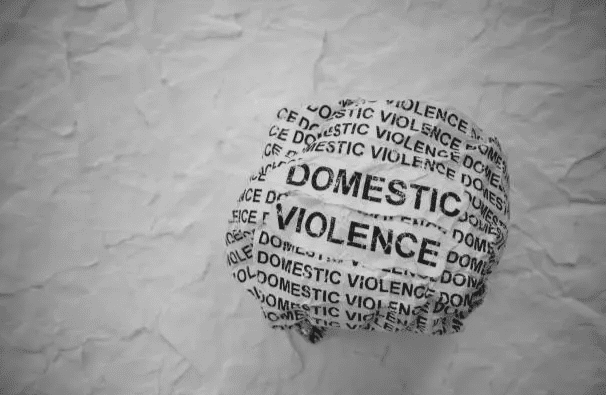Emotional abuse is vastly different from physical abuse. There aren’t visible scars or “proof” of hurt, only mental agony that many can’t verbalize. However, these different types of emotional abuse shouldn’t be ignored.
At first, you may have problems identifying what is considered emotional abuse and what is not. But if you have been in situations where you have mentally and emotionally felt exhausted without any physical bruises, those have been emotional abuse on you.
While sometimes you may feel trapped, there is always a way out. We are going to discuss 6 types of emotional abuse that aren’t considered physical violence. While informing you about the abuse, we will also try to provide you with steps you can take to move towards the help you need. Let’s begin!
What Is Emotional Abuse? How Is It Different from Physical Violence?
While you can Google a definition of emotional abuse, it is not that easy to categorize or pinpoint what it is. However, people who have endured emotional abuse define it as forms of psychological abuse that have direct controlling, humiliating, or manipulating behaviors.
The other person in a relationship or partnership may deliberately induce such mannerisms to limit the other person’s socializing. While there is no physicality involved, it can be burdening mentally through emotional means.
This type of abuse targets the person’s sense of self and can have deep, personal implications for years. People who are the victims of such situations develop anxiety, depression, or post-traumatic stress disorder without even realizing it.
How Is It Different from Physical Abuse?
Emotional abuse and physical violence both harm a person. However, the way they take form, the effects they have, and how it is used on a person are all different.
- Forms of Harm: Emotional abuse is a direct attack on feelings, thoughts, and the worth of a person, while physical abuse is injuring or causing pain to a person’s body.
- Visibility: When someone goes through emotional abuse, they may not be able to prove or tell about their experience. Physical violence, on the other hand, is identified easily through visible bruises or medical evidence.
- Strategies Used: Emotional abusers use words, manipulation, and psychological tactics. Physical abusers use their bodies and physical aggression to hurt others.
- Experience Over Time: The effects of emotional abuse are long-term and take years to resolve, while physical scars can be tended to immediately using medical help.
- Recognition and Response: Due to the different nature of evidence, emotional abuse is taken way too lightly compared to physical abuse.
These reasons make the battle for emotional abuse way harder for certain individuals who naturally may be timid.
6 Types of Emotional Abuse That Aren’t Physically Shown
After talking to many people who have endured emotional abuse, these are the 5 types of abuse emotionally that are motivated without physical escalation.
1. Invasion of Privacy
People who face emotional abuse first face an attack on their privacy. Generally, in relationships, people have a mutual understanding of each other’s privacy and don’t invade without a good reason.
However, people who are emotional abusers make sure that they don’t consider privacy as a factor in a relationship at all. They may follow a pattern of invasion of privacy or just randomly start searching through their partner’s phone, wallet, drawers, and other belongings.
To prevent this very behavior, you should start by clearly voicing out why this behavior is disturbing to you.
2. Mocking & Dismissing Boundaries
People who abuse emotionally start targeting boundaries. In their thought process, it is good to be informed of every move your partner has and to use it against them in the form of mockery. Many people consider this the most intrusive form of emotional abuse.
If the victim tries to speak up or set boundaries, they may be laughed at or, worse, shamed for such actions. Sometimes they are also made to feel guilty by being labelled as “too sensitive” or “causing drama”. It can have very negative effects, like:
- Losing confidence
- Getting conditioned
- Hit on self-identity
To avoid such emotional abuse, many victims shift to professional help or reach out to their family and friends for more opinions and help.
3. Invalidating Feelings and Opinions
Once the above emotional abuse develops, the next form is always to invalidate the victim’s feelings. The biggest part is gaslighting in these situations, which begins with “you have a bad memory”, “this never happened”, “you are putting the blame on me”, or “you always want to minimize my identity”.
These words can have a bigger impact on someone who already feels unheard. They may resort to staying quiet or complying with the abuser. Their feelings are intentionally supposed to be dismissed so they cannot argue or put up a case in the first place.
Psychologically, people start doubting themselves and then accepting the “gaslighting” as their fault.
Many try to cope with invalidation or gaslighting by gathering evidence against their abusers. But this may take time and also courage.
4. Constant Monitoring and Keeping An Eye
Just like invasion of privacy, this is a type of emotional or psychological abuse that is evaluation or based on observation. The monitoring of the victim is done to keep them secluded from their friends and families, to make sure they only follow what the abuser tells them to.
Keeping an eye is so common as a form of emotional abuse that almost 51% of Americans have spied on their partner by looking at their messages without their consent. Hence, this is a very damaging behavior that affects the victim quite deeply. More actions that can follow this are:
- Reading emails
- Checking social media messages
- Requiring frequent updates on whereabouts
- Inquiring about private correspondence
- Going through personal belongings
Even though there is evidence that such acts are motivated by jealousy, over concern, and trust issues, it is not supposed to be it. If you recognize this as something happening to you, start seeking therapy in Philadelphia or your nearby location who specializes in emotional abuse is the best option.
5. Guilt Tripping or Emotional Blackmail
A relationship’s dynamics are simple; both people have some amount of responsibility for the other. But when one person starts to blame the other for how they feel, what they are going through, it becomes a type of emotional abuse of people.
This is most commonly known as guilt tripping or emotional blackmail among victims of emotional abuse. Mostly, people endure:
- Conditionally loving or choosing to show affection, contributing to the mentality that love is earned.
- Enforcing guilt to drive decisions with “If you love me, you would…” or “You’ll never find someone after me”.
- The blame is always on the victim, even when the abuser is causing mental scars.
- Dialogues like “I don’t want to do this, you are making me”, “I have never done this before, this is all you”, or “You are the only partner who has broken me” have become common.
- Creating a cycle of fear and compliance through providing bigger reactions to small disagreements.
There is no easy way to escape this. Hence, seeking a professional therapist with expertise in relationships is wise.
6. Comparisons and “You Are Better/Worse Than” Statements
This is the worst thing that can come out of your partner’s mouth. Imagine enduring insults publicly where you are being compared to their previous love interests, friends, or even fictional characters. These comparisons are done to lower the self-esteem of the other person.
If this isn’t enough, many emotional abusers are pushy and judgmental just so they can pass off such comments for their advantage. One of the most common statements is “my ex never questioned my decisions or intentions like you do”. It is said that such behavior is considered a no-no in the sphere of emotional abusers, hence the constant judgment.
If you want to escape this cycle of unfair comparison, it is better to exit the relationship or move away for some time to recalibrate everything that has been happening to you.
Afterword
Not every behavior is a form of emotional abuse. However, if things continue the same way even after you communicate so, that is emotional abuse. If you have been in an abusive relationship for years, these types of emotional abuse might be enough to tell you it’s unhealthy.
If you have decided to break free from such patterns, it is important that you do so quickly. With the help of a relationship therapist, you can overcome past or current relationships or make meaningful changes to avoid such relationships even in the future.
The quickest and simplest advice is to move away from such persons and bonds. However, you might be scared of something worse happening. If this is the case, and you think it might turn into domestic violence, please reach out to the authorities and get to a safe location.





























